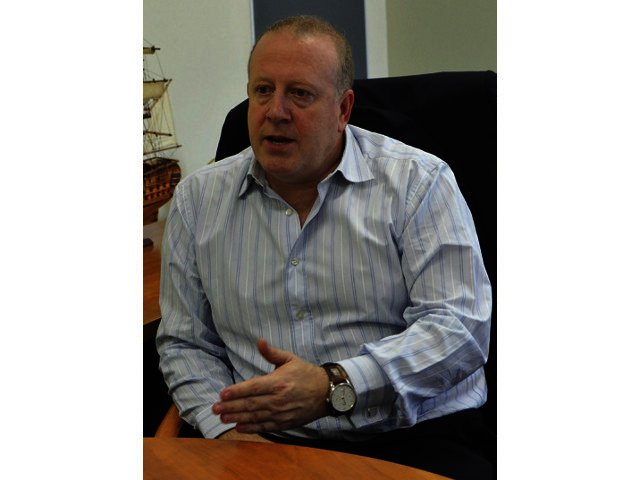Multinationals seeking to make inroads into Africa now have a viable and flexible means, thanks to Broadlink building its own hub to connect to the continent.
The lifeblood of today’s business environment invariably comes down to connectivity, and certain parts of Africa are notorious for having been literally and figuratively disconnected. However, Broadlink’s latest foray, which sees the company now offering its own VSAT satellite connectivity, is good news for multinationals looking north to expand their operations. Mike Brown, the CEO of Broadlink explained that a decisive factor enabling the company to invest in building its own hub at the Teraco data centre in Isando, Johannesburg was the company’s vendor neutrality. “If it wasn’t for Teraco I think we would have had to think long and hard about our alternatives, “he elaborated. “We also like our independence, which made it the perfect marriage between what we wanted and what they offered,” he continued.
Agility and openness
Nicole van Niekerk, the marketing manager at Broadlink, added that this means that enterprises can connect their remote branches and connect with Africa without being specifically aligned to one of the big telecommunication operators that have their own existing hubs. She pointed out that an African country connecting to Broadlink’s hub will also have easy access to a multitude of South African Telco’s, local and global business and NAPAfrica with the Teraco data centre conveniently located right there. However, the fact that Broadlink’s VSAT solution is built at a vendor-neutral site has another, deeper benefit, as this, according to Brown, brings with it business agility advantages as well. “I think that neutrality is key when you start talking about speed; we can make decisions pretty quickly, so when you do that in a neutral environment, it caters to what customers are seeking,” he elaborated. As to the installation itself, this offers some benefits of its own. Brown reassured that Broadlink’s VSAT offering boasts the latest iDirect equipment and offers a high power output. This, he explained, ensures good efficiencies through the spectrum usage and further enables remote sites to employ smaller antennas, while still receiving great connectivity.
Viable alternative
As to the attractiveness of satellite connectivity versus fibre, Brown is not concerned about threats to satellite’s viability. “Everyone says there is a proliferation of fibre connecting the continent, but the only thing that this is doing is fuelling growth. The fact of the matter is that the cost of deploying and lighting fibre to all corners of the continent means it is not always viable and still leaves a gap for satellite services. People who think that the satellite industry is declining are very wrong,” he stressed. Indeed, Brown reported that the company was witnessing a great deal of demand, as an increasing number of companies continuously need to go into remote areas within and across South Africa’s borders. “The more rural their operations, the more they are going to need satellite,” he pointed out. Van Niekerk added that furthermore, while a number of countries such as Kenya and Nigeria are “making huge inroads from a broadband and connectivity perspective”, Broadlink was still receiving requests from South African multinationals opting for satellite connectivity for their African branches. The reason for this, she explained, was the nature of dealing with Africa itself, which can be difficult, tricky and unfamiliar. Indeed, Africa may just be the next frontier for multinational enterprises, but that doesn’t mean it’s a simple or an easy market to crack. However, it does highlight a mutual need – with the African continent having to perform on a global stage, while companies locally and abroad seek new sources of revenue as their existing markets seem to stagnate.
The redundancy imperative
Perhaps though, the most compelling argument for enterprises’ considering satellite services can be sourced in the critical need for redundancy, and for a backup of their connectivity should their terrestrial connection fail. Brown pointed out that sectors such as finance and insurance also have to contend and comply with their own regulations around business continuity. Furthermore, as businesses turn to cloud based applications and services, this means that constant connectivity to their critical systems, like Enterprise Resource Planning and Customer Relationship Management, is more important than ever. “In the past, people could live with being down for a day, It’s completely unacceptable now, a business actually cannot afford to be down, ever,” stressed Van Niekerk.





